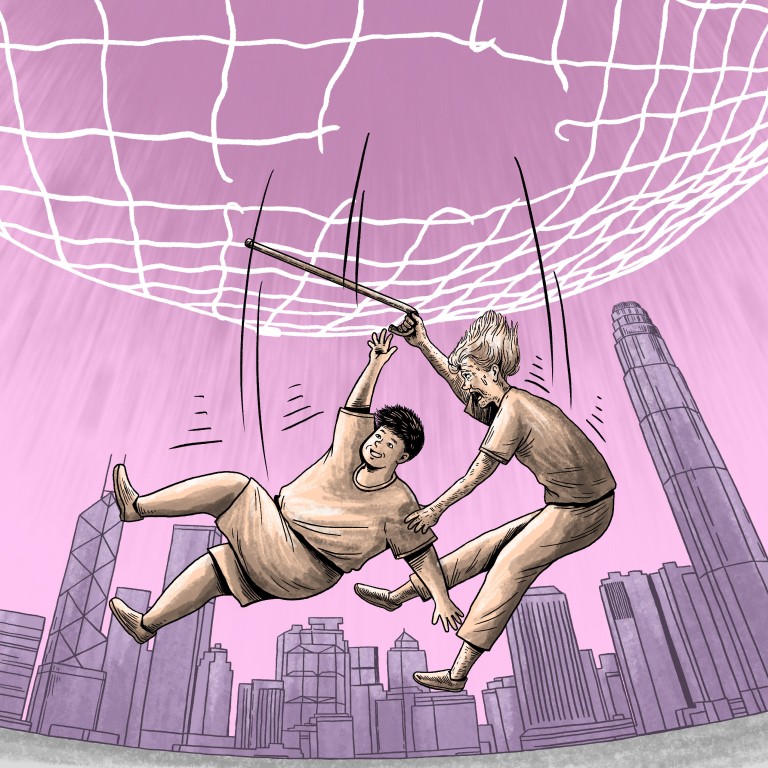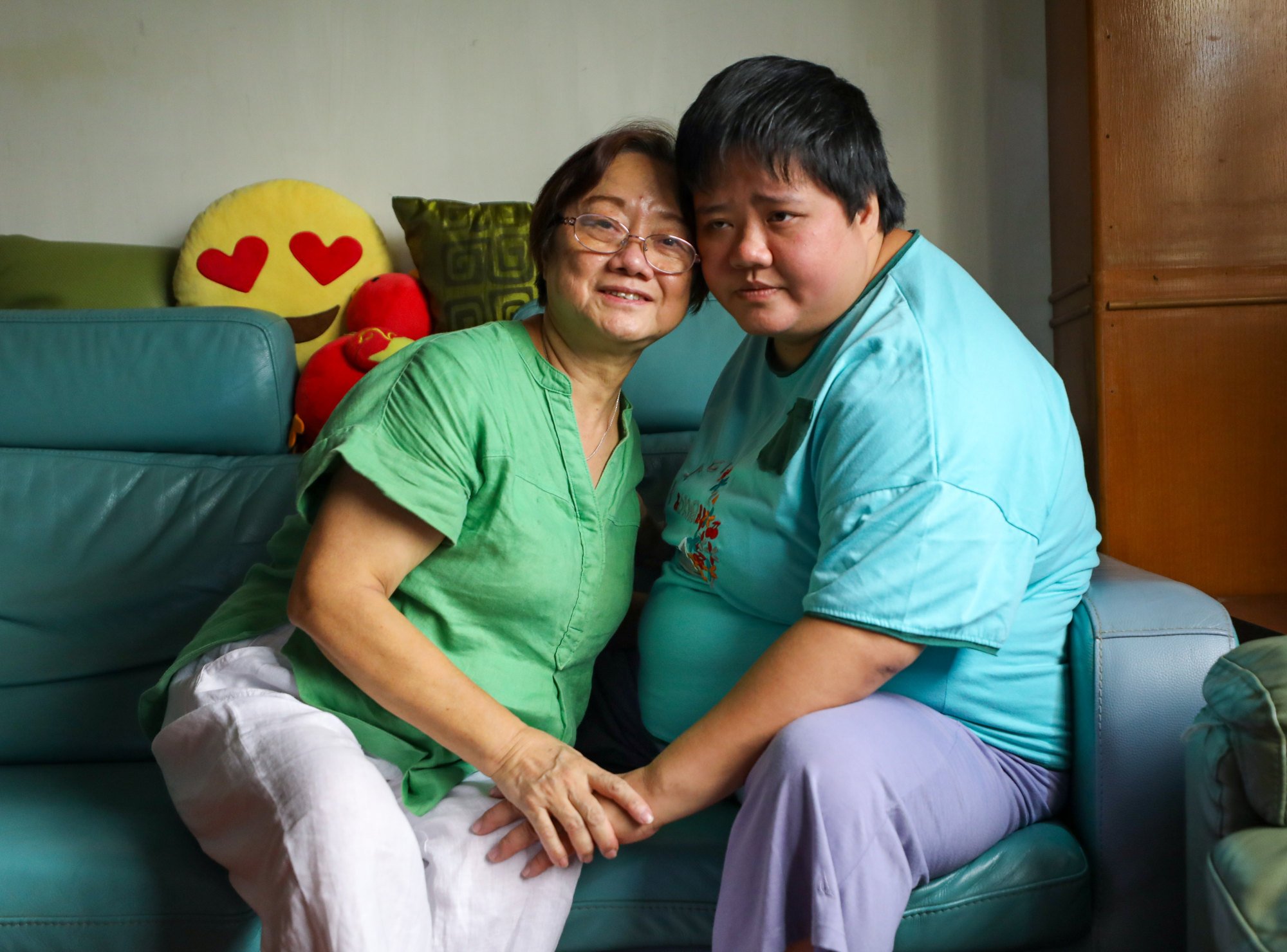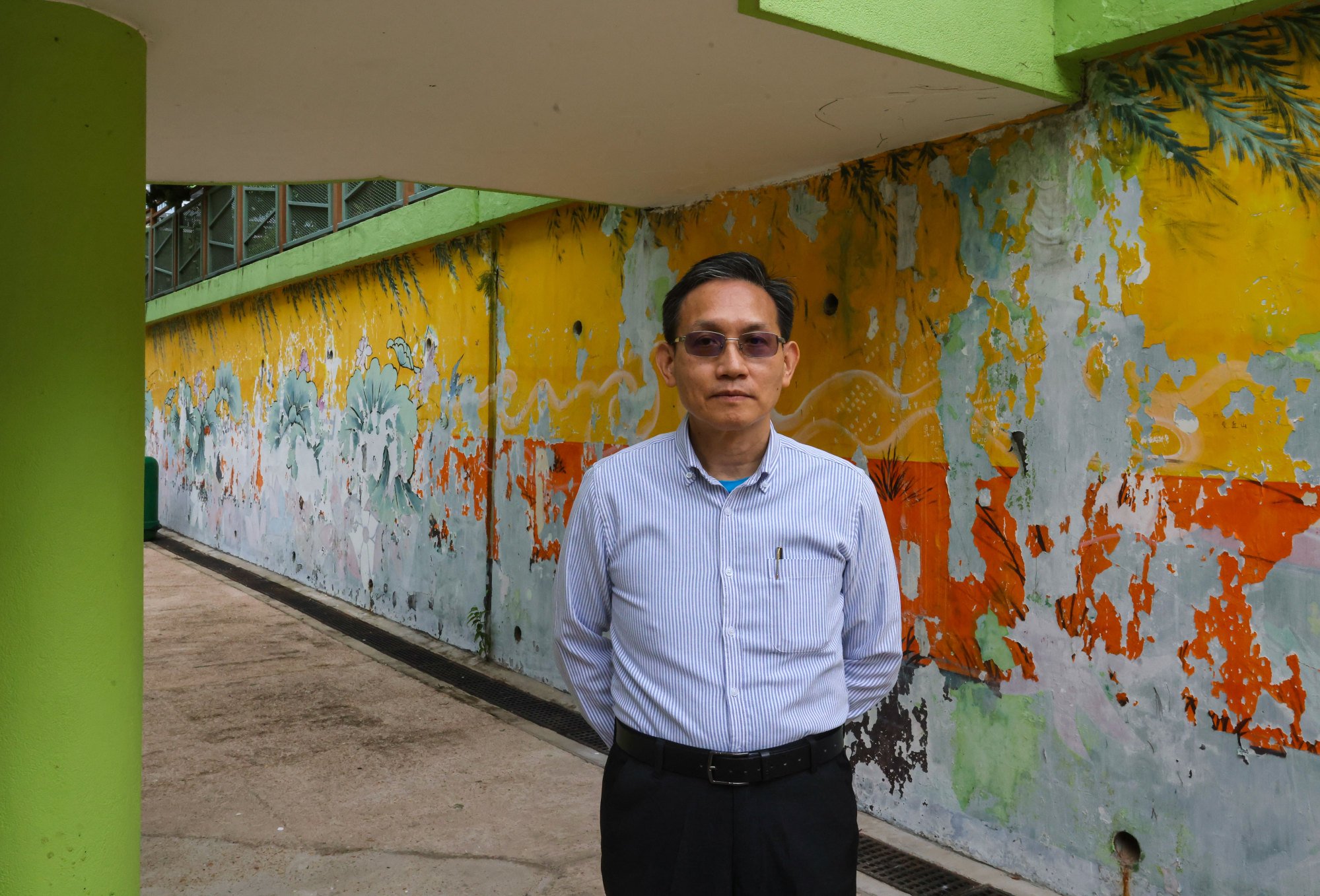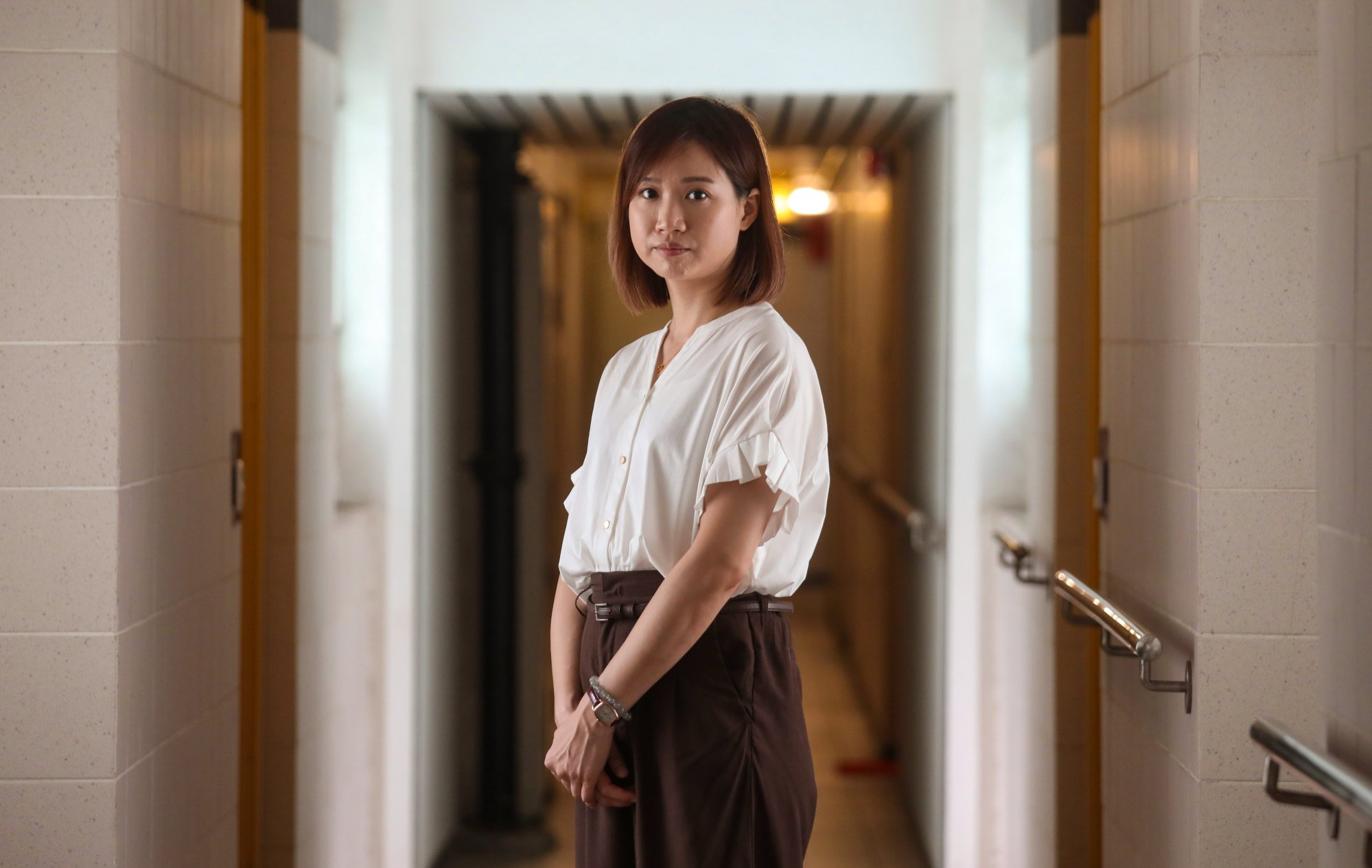
‘They fell through the cracks’: how can Hong Kong better help mentally disabled people and their carers? Parents, experts want wider safety net for high-risk residents
- Tragic case of mentally disabled adult brothers found dead at home shows ‘safety net needs to be tightened’, experts say
- Teams to go door-to-door to identify overstretched carers under new initiative, but one academic says measure ‘like finding a needle in a haystack’
Every Friday, housewife Chan Cho-min, 66, waits for her daughter to return from a care home for the weekend.
Now 34, her daughter was found to have a severe intellectual disability and autism as a toddler. She also has diabetes and sleep apnoea – a disorder involving disrupted breathing during sleep.
Unable to speak properly or look after herself, she has been living at a care home for mentally disabled people since leaving a special educational needs school at 21.
But Chan said her daughter did not get proper care at the home, which was so understaffed that two carers looked after 50 residents.
Although she brings her only child home at weekends and whenever she is ill, it has become harder as she has grown older herself. Her 73-year-old husband is still working to support the family.

Four helpers she hired quit, finding the work too hard. Chan’s daughter screamed and was restless, needed help to be turned around during sleep and her diapers had to be changed.
“We need more support to look after our mentally disabled children,” said Chan, who lives with depression, diabetes, high blood pressure and joint pain herself.
A recent tragedy sparked public concern and reignited debate on whether Hong Kong provided enough support for those with mental disabilities and their carers.
On September 22, two mentally disabled brothers, aged 53 and 55, were found dead at their home at Sau Mau Ping Estate after their mother was admitted to hospital.
A source familiar with the case earlier told the Post that a preliminary examination suggested they had been dead for some time. The Hospital Authority said the brothers had been capable of going out alone and feeding themselves.
Subsidised hostels struggle to care for mentally disabled youth
Disturbed by the case, experts and concern groups said the city’s safety net and support for people with intellectual disabilities were inadequate and called for more to be done for them and their ageing carers.
“The current social support network is very far from being adequate, with the rapid ageing of the population including a lot of people with intellectual disabilities,” said emeritus professor Cecilia Chan Lai-wan, of the department of social work and social administration at the University of Hong Kong.
“Hong Kong, as one of the most advanced developed economies in the world, cannot tolerate such neglect of the vulnerable population.”
She blamed a lack of cooperation and exchange of information between various government departments for the cracks in the safety net.
“They fell through the cracks of the safety net,” she said, referring to the brothers who died. “The net has to be tightened.”
Carers of people with mental illness struggle to find support in Hong Kong
Where to go after special school?
Hong Kong had 77,000 to 90,000 people with intellectual disabilities in 2020, or about 1 per cent of the population, according to official statistics.
For many, intellectual disability means being unable to care for themselves or having limited learning, communication and social skills.
For most, their parents are their main carers. Amid a rapidly ageing population, experts have warned that these carers are gradually losing their ability to look after their children.
In early October, a 53-year-old woman was arrested after she and her 20-year-old twin sons were found injured in their flat in Wong Tai Sin with cuts on their abdomens. The Post learned that the twins had intellectual disabilities.
An insider said that initial investigations suggested the brothers, who attended special care classes, had refused to go to school and quarrelled with their mother. She allegedly used a fruit knife during the fight, hurting herself and her sons.
The needs of disabled people span housing, welfare, healthcare, education and transport, among others
Martin Wong Wai-hung, chairman of the Hong Kong Joint Council of Parents of the Mentally Handicapped, said there was a lack of support when children became adults and left their special schools at 21.
“Most have nowhere to go after graduation, they end up staying at home and sitting around all day because they still need to wait months or years to receive vocational training or day care services, and the wait for residential care could take up to 10 years,” he said.
Hong Kong has about 5,870 places at day activities centres, with an average waiting time of more than four years, and about 5,390 places at sheltered workshops with a one-year waiting list.
The government provided about 6,970 places in residential care for mentally disabled people, but there were about 5,070 on the waiting list as of June, with the wait time stretching past 12 years, according to official data.
In the policy address last month, the government said designated teams would be set up next year to contact carers of children completing special schools six months before graduation to help arrange care plans and identify community support services.
Chief Executive John Lee Ka-chiu also said a three-year pilot scheme would provide a subsidy of HK$500 (US$64) a month to disabled people on Comprehensive Social Security Assistance (CSSA) who also held a job.

The measures are on top of pledges to increase the quota for residential care and day care services.
But Wong said the HK$500 bonus was too small and hardly an incentive for recipients to find employment. Besides, many disabled people, especially those with mental disabilities, could not even apply for the welfare handout.
Mentally disabled people living with families must apply for the CSSA as part of a household, taking into account the income of family members, and that could affect the outcome.
If CSSA recipients worked and earned more than HK$6,800 a month, a maximum of HK$4,000 would be considered “disregarded earnings”, and the remainder would be offset against the amount of assistance.
Wong said the government should not only allow disabled people to apply for the CSSA individually, but also do more than offer a cash bonus.
“Wouldn’t it be more helpful if the fund could be used to provide job support services to help them do career planning, get matched with employers and fit into the workplace,” he asked.
“Many mentally disabled people have the ability to work, but the challenges lie in managing relationships with colleagues.”
Hong Kong’s intellectually disabled spend less time outdoors amid pandemic: study
He also urged the government to require or provide tax incentives to encourage employers to hire a certain number of staff with mental disabilities.
Mok Yin-chun, a 57-year-old woman with severe intellectual disability, worked as a packer and laundry worker for almost three decades after leaving special school at 21.
Her 80-year-old mother Lee Po-tsun went all out to help her find a job. Mok was happy at work, earning about HK$4,000 a month until around six years ago when some of her long-time colleagues retired.
“She developed depression, and the new arrivals were not willing to accept her – you could tell just by the way they looked at her,” Lee said.
Mok clashed with her new colleagues and, at one point, remained in bed for three days without eating. She quit her job and began going to a day care centre from 9am to 6pm daily.
Her mother Lee said that despite her advancing age, she intended to care for her daughter as long as she could. Once she was gone, her sister would take over, she said.
Hong Kong protection group warns of using restraints on mentally disabled students
‘Look for them and help them’
In late September, authorities launched a 24-hour hotline for carers after the Sau Mau Ping tragedy. It had received about 2,500 calls by mid-November.
Social workers and experts urged the government to compile a list of high-risk residents with intellectual disabilities, conduct regular home visits and assign case managers to track and coordinate services for them.
Assistant professor Kwan Chi-kin, of City University’s department of social and behavioural sciences, said the current system mainly served those who sought help, whereas the most vulnerable did not know how to find assistance or were reluctant to do so.
He said the government’s philosophy on welfare assumed that people in need would look for help themselves, but many with intellectual disabilities had difficulty expressing themselves and were isolated.
Experts and social workers said the carers needed attention too.
2 mentally disabled Hong Kong brothers found dead ‘were able to go out alone’
Crystal Yuen Shuk-yan, a community organiser with the Society for Community Organisation, said among the most high-risk were elderly parents looking after mentally disabled children.
“They are simply holding on, worried that they won’t be able to take care of their mentally disabled children when they get older,” she said.
She noted mutual support within the neighbourhood was helpful to carers, and having a support model, in which professional workers led a group of trained residents to provide care for those in need, could help ease the staff shortage.
According to the policy address, authorities will task community care teams with going door-to-door to identify overstretched carers and refer those in need to relevant welfare authorities. A pilot scheme will be run in Tsuen Wan and Southern district.
The teams will be made up of volunteers chosen by the government to serve the community.
Hector Tsang Wing-hong, chair professor and head of the department of rehabilitation sciences at Polytechnic University, welcomed the initiatives, which he described as a more proactive approach.
“But the task is like finding a needle in a haystack, considering the dense population,” he said.
“Instead of going door-to-door in every building, the care teams could make use of speed tests in the form of questionnaires developed by researchers to locate high-risk families efficiently.”

The authorities will also ask 20 residential care homes for people with disabilities to provide respite services whenever possible to allow carers short breaks from their round-the-clock responsibilities.
Tsang said the supply of respite services under the new initiative could hardly meet the demand and the current ones were not flexible enough.
For example, carers in urgent need of respite services should not be asked to make reservations in advance, he said.
The government pledged to increase the number of disabled people and their carers in the Rehabilitation Advisory Committee under the Labour and Welfare Bureau from 2024 to better gauge their needs.
But social welfare sector lawmaker Tik Chi-yuen said the body was not representative enough and called for a high-level committee to look into the needs of people with disabilities.
“The needs of disabled people span housing, welfare, healthcare, education and transport, among others … [and] the body should be able to mobilise resources across departments,” he said.
He suggested having a committee led by the chief secretary, with at least half its members being residents with disabilities chosen by election “so that the voice of disabled people will be heard”.


